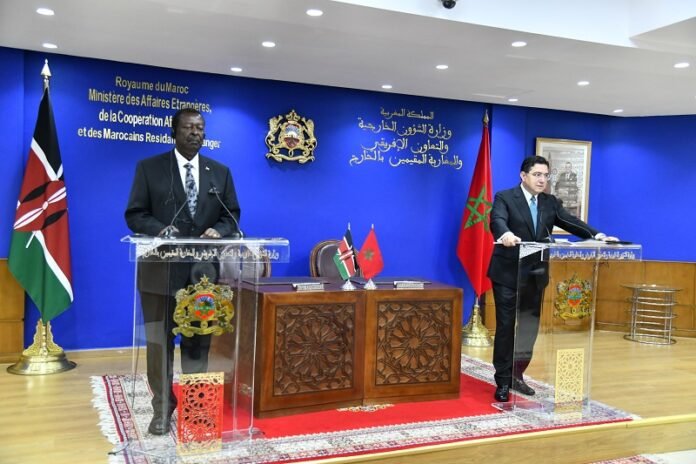A reading of Aziz Rabbah’s article on the Moroccan-Kenyan partnership
In his latest article, former minister Aziz Rabbah chose to highlight what he describes as a “Moroccan diplomatic victory,” through Kenya’s explicit support for the Moroccan autonomy plan for the Sahara and the opening of a Kenyan embassy in Rabat. But beyond this observation, Rabbah places this progress within a broader strategic vision that redefines the contours of Morocco’s relations with the African continent.
Through an analytical reading of the text, it becomes apparent that Rabbah, without stating it explicitly, suggests that Morocco is not just gaining temporary support, but is strengthening its position as a structuring actor in African equilibria—adopting a diplomacy based on patience, depth, and gradual construction, rather than confrontation or ideological alignment.
Kenya: The Start of a New Cycle or a Step in a Long-Term Strategy?
When Rabbah notes that Kenya “remained difficult to approach for a long time,” he implicitly acknowledges that the diplomatic challenge was complex and that Morocco bet on a long-term strategy and quiet perseverance.
But what does such a shift signify—seeing Kenya move from supporting separatists to becoming a partner in the Moroccan autonomy plan? Is it simply the result of a leadership change in Nairobi?
Or does it reflect a deeper awakening within Africa itself—an awareness of the Sahara conflict’s true nature as a symbol of a broader battle for continental unity, sovereignty, and liberation from neo-colonial logic?
A Kenyan Statement That Goes Beyond Conventional Diplomacy
The Moroccan-Kenyan joint communiqué did not settle for usual diplomatic platitudes. When Kenya states that the autonomy plan is “the only sustainable approach” and expresses willingness to cooperate with countries that share this vision, it is no longer a polite agreement—it is a deliberate political alignment that could open the door to a reconfiguration of African alliances in Morocco’s favor.
From there, strategic questions arise:
-
Are we witnessing the dawn of an African bloc actively supporting Morocco’s territorial integrity?
-
Is Moroccan diplomacy entering a new phase, moving from reactive defense to proactive initiative as a continental power of influence?
-
And what role are African elites called to play in this geopolitical redefinition?
From Diplomatic Victory to National Consolidation
In the conclusion of his article, Rabbah does not overlook the internal dimension. When he speaks of the need for a “strong and united internal front,” he sends a subtle yet firm message: international successes remain vulnerable if they are not backed by a cohesive society—capable of resisting manipulation, disinformation, and attempts at destabilization, whether from within or outside.
This leads to a crucial question:
Is the internal dynamic keeping pace with the external strategy?
Do we currently have a media landscape, elites, and public policies capable of transforming these diplomatic successes into lasting national capital, rather than reducing them to fleeting moments of celebration?
Beyond the Lines: Morocco Proposes an African “Project,” Not Just a Position
When Rabbah asserts that Morocco is not merely defending its national cause but offering an African development model, another fundamental question arises:
Is Morocco positioning itself as a central architect of an alternative African project—one not based on conditional aid or declarative forums, but on equitable partnerships, mutual respect, and a co-development vision rooted in sovereignty?
And if that is the strategic horizon, is Africa ready to follow this path?
Has it truly turned the page on instrumentalized ideological divides that have long fueled discourses of division and secession?




